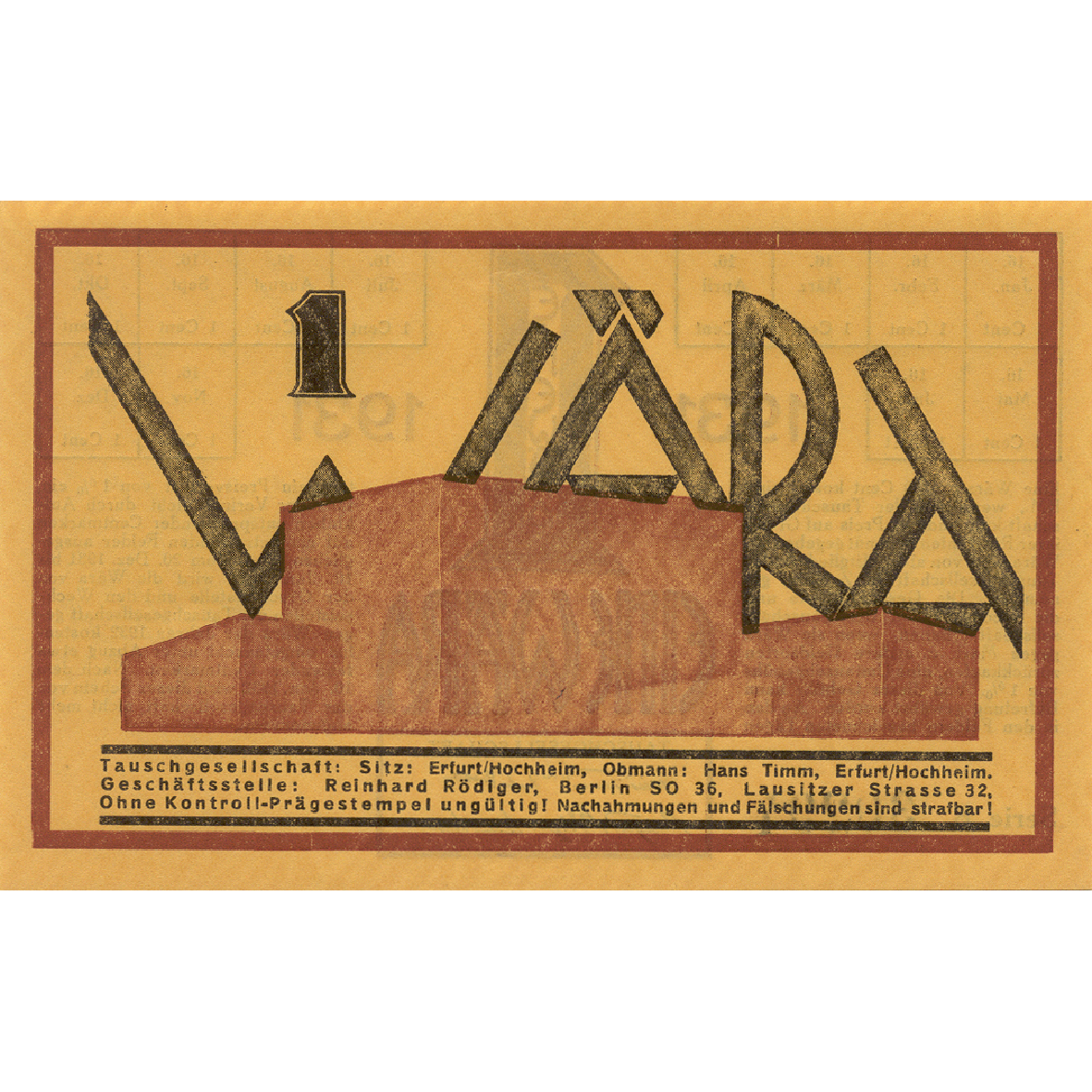The Wära Exchange Association was founded in Germany in 1929, at the time when the Great Depression began. It antedated the principle of all future exchange societies: A community of like-minded people agrees to a measure of value, against which services and products can be set off. The characteristic of the wära currency was that anyone holding it had to buy special stamps costing one per cent of each note's face value at the end of the month, in order to re-validate it for use during the following month. Naturally, this fee meant that anyone receiving wära tried to spend it before it needed to be stamped again. The new currency thus began to circulate rapidly and with great success: in 1931 more than thousand companies throughout the German Empire were members of the Wära Exchange Association. However, in November 1931, the German Government passed an emergency law that ended the circulation of wära.

